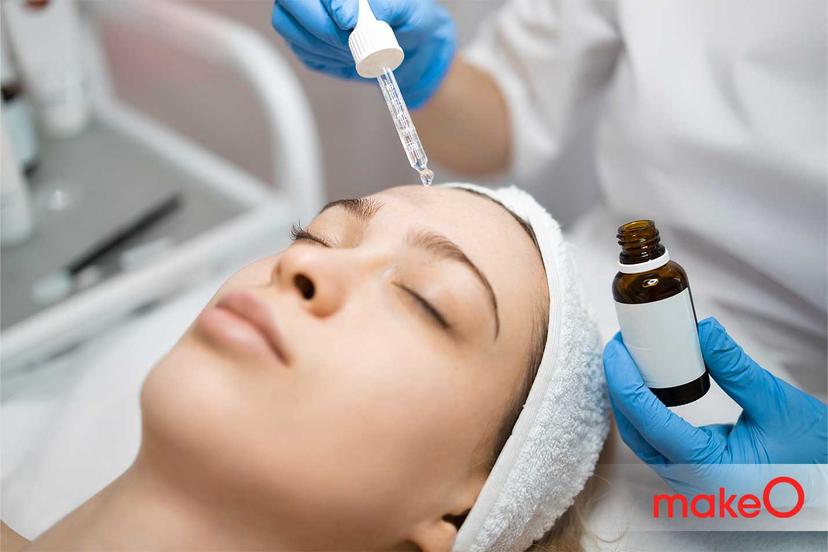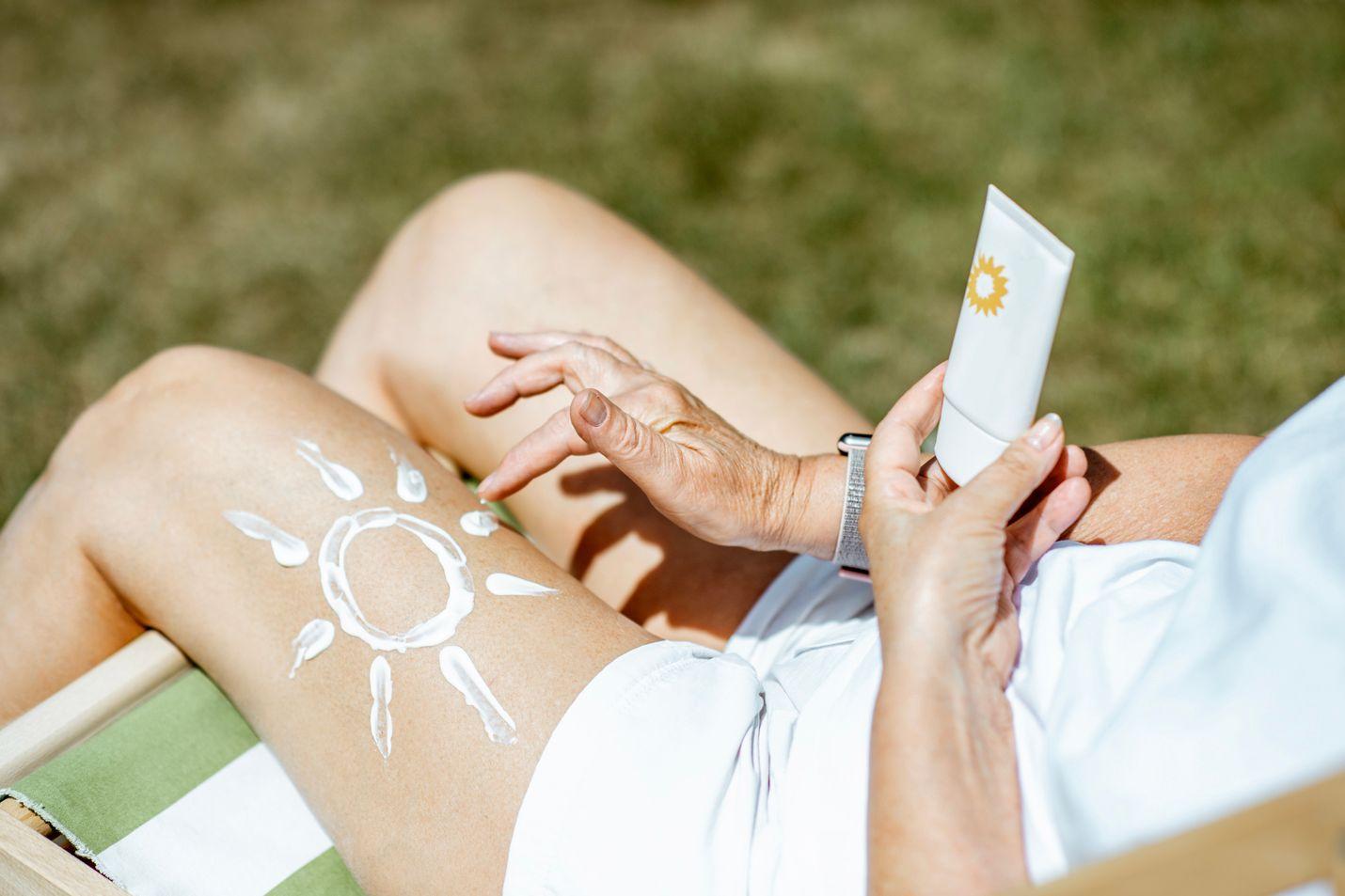MakeO blog
We all love stepping out in the sun, playing on sandy beaches with a carefree attitude, and even basking in the soft sunlight on quiet mornings. Sunlight is a vital part of our lives, but as much as we love it, the sun’s rays are also very harmful to unprotected skin.
This is where sunscreen comes into the picture. But, since sunscreen is often viewed as greasy, heavy or just too much work, along with many other misconceptions, many people don’t use sunscreen and end up ruining their skin quality! What are these sunscreen myths and how much of them hold any truth to them? Find out here!
7 Sunscreen Myths and Facts that you should know about
Myth 1: Only fairer skin tones need sunscreen.
Many people seem to assume that sunscreen or sun protection is only important for those who have fairer or lighter skin. This is incorrect. All skin tones need sunscreen to protect their skin quality from the harmful rays of the sun. Of course, darker skin tones contain more melanin which can provide some amount of sun protection, however, this does not nullify the need for sunscreen for darker skin tones. Using a broad spectrum SPF 50 sunscreen daily can be highly beneficial for all skin types as it can fight signs of ageing, skin cancer risks, sun spots, redness, tan and more.
Myth 2: The higher the SPF, the better the protection.
We all assume that a higher SPF number for example SPF 80 is more effective than SPF 30 or SPF 50. But in reality, the difference between the efficacies of these different SPF numbers is very little. In fact, for normal day-to-day usage, SPF 30 works well enough to protect your skin against harsh sunlight. And for humid, tropical and sunny temperatures, SPF 50 is more than sufficient to help your skin avoid sun damage!
SPF 30 filters out around 97% of UVB rays and SPF 50 filters out about 98% of UVB rays. So the difference is very minimal!
Myth 3: No sunscreen on cloudy days.
Many think that sunscreen usage is limited to sunny days. This means that they often actively avoid using sunscreen on cloudy days, not knowing that even on cloudy days, the sun rays can still cause their skin some damage! It is a fact that up to 80% of UV rays can penetrate clouds so even on cloudy days, your skin runs the risk of coming in contact with harmful sun rays and getting damaged if left unprotected.
Myth 4: Ingredients of sunscreens are full of harsh and toxic chemicals.
It is always good to be worried about the ingredients used in the products you buy; however, all sunscreens are heavily researched, tried and tested before being sold. All the sun-protecting ingredients in sunscreens are tested for skin safety and if you have specific skin concerns or preferences, you should check with your dermatologist and find a sunscreen that suits you.
Myth 5: Sunscreen provides protection from the sun instantly.
We might think wearing our SPF a few minutes before heading out in the sun means that the sunscreen is already working its magic and keeping our skin safe. But in actuality, sunscreen takes about 15-30 minutes to begin working which means that you must apply your SPF a while before you step out to ensure that it really is working for you!
Myth 6: Sunscreen hinders the absorption of Vitamin D into our skin.
The sun is a major source of vitamin D for us. And vitamin D is a vital factor in keeping our health and strength in place. A common sunscreen myth is that sunscreen blocks the absorption of Vitamin D. But, generally most people get Vitamin D from many regular activities and sunblock does not make too much of a difference. If you are concerned about your vitamin D levels while wearing sunscreen, you can opt for food rich in vitamin D or take supplements too!
Myth 7: You don’t need to reapply sunscreen.
You might think that once you have applied sunscreen you don’t have to worry about sun damage for the rest of the day. However, according to experts, it is important to reapply your sunscreen every 2 hours to ensure that your skin is consistently protected from UV rays. This is especially true if you are out swimming or sweating. For people working indoors, applying once or twice is sufficient.
Sunscreen is a superstar skincare product that is a must-have in today’s world. It not only saves you from tanning and pigmentation, but fights signs of ageing like wrinkles, loose skin, fine lines etc, keeps you free from sun spots and protects or reduces the risk of skin cancer too.
Convinced to start wearing sunscreen every day? Try our skinnsi sun smart ultra matte cream gel sunscreen. Suitable for all skin types, this broad-spectrum sunscreen is SPF 50, lightweight and enriched with the power of vitamin C to provide brightening effects. For those looking for paraben-free, cruelty-free and fragrance-free sunscreen, then the makeO skinnsi sun smart ultra matte cream gel sunscreen is the best sunscreen option for you!
Sunscreen Myths FAQs
Does wearing sunscreen really make a difference?
Yes, wearing sunscreen daily has many advantages. It shields you from sun damage, reduces signs of ageing, prevents sunspots, pigmentation and tanning and promotes overall skin health.
Does sunscreen cause darkening?
Using the right sunscreen will not negatively impact your skin at all. In fact, sunscreen can prevent hyperpigmentation, slow down the process of ageing, sunspots tanning and more.
Is sunscreen necessary for Indian skin?
Sunscreen is very important for all skin tones. Though Indian skin contains more melanin which protects the skin from sun damage, it does not provide sufficient protection so Indian skin too requires sun protection.
related categories
Related articles

Anti-Ageing Face Oils: Unveiling the 10 Best Facial Oils for Youthful Skin

5 Common Mistakes to Avoid When Using a Face Roller

Is Aloe vera effective for acne? Find out

5 Side Effects of Hair Removal Creams That You Must Know

